A New Chapter for the 2022 Senior Thesis Prize Winners
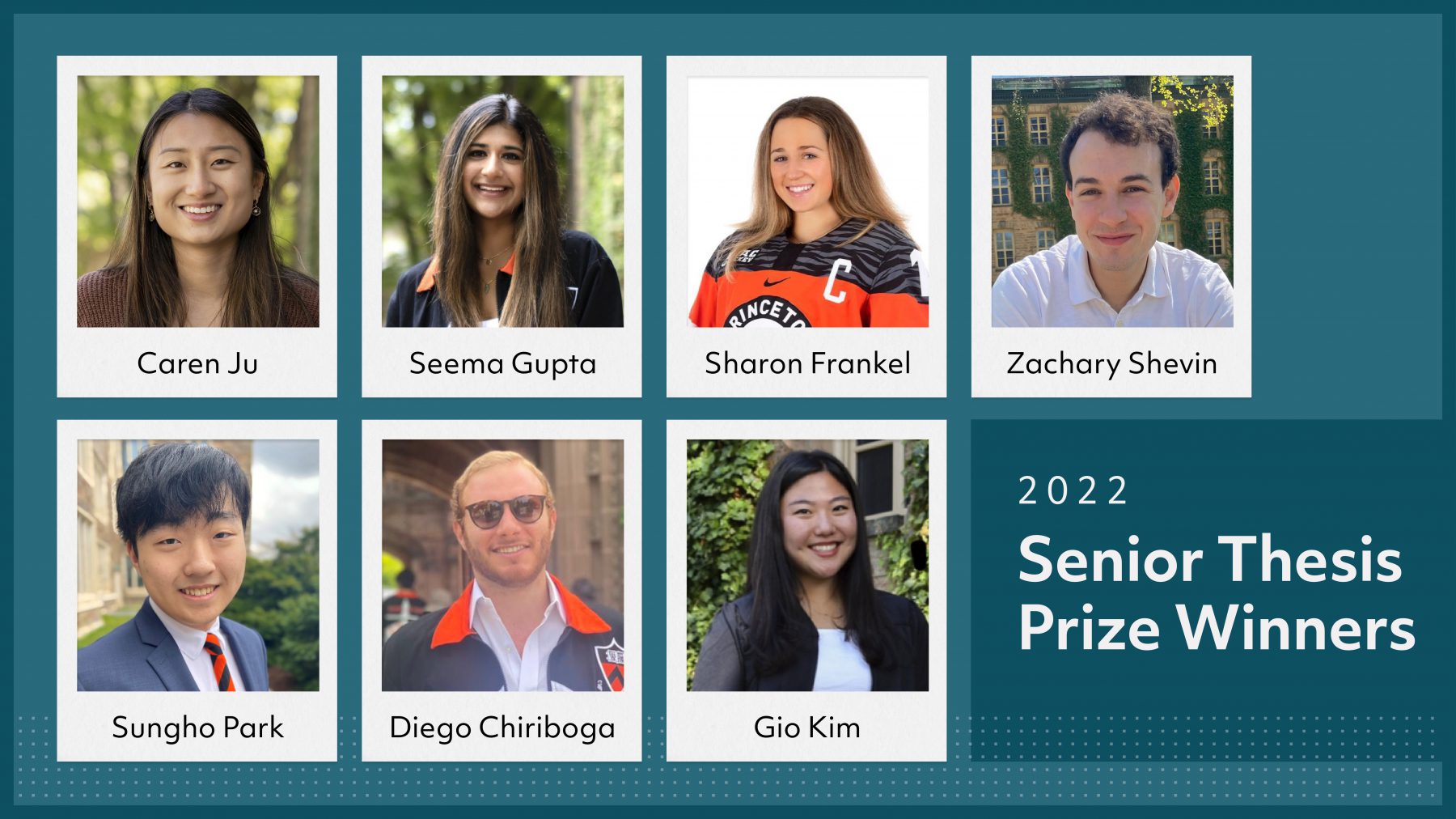
Commencement 2022 has come and gone, but we’re still looking back on this year’s Class Day and celebrating the Class of 2022.
Every year during the Class Day ceremony, the Economics Department awards several prizes to students whose senior thesis projects represent the best across a range of topics. These include:
- The John Glover Wilson Memorial Award for the Best Thesis on International Economics or Politics
- The Walter C. Sauer ‘28 Prize for the Most Creative Thesis on Any Aspect of Foreign Trade
- The Dan I. Rubinfeld ‘67 Prize in Empirical Economics for the Best Thesis in Empirical Economics
- The Elizabeth Bogan Prize in Economics for the Best Thesis in Health, Education, or Welfare Economics
- The Burton G Malkiel ‘64 Senior Thesis Prize in Finance for the Most Outstanding Thesis in the Field of Finance
- The Wolf Balleisen Memorial Prize for the Best Thesis on an Economics Subject Written by an Economics Major
As we head into summer, we caught up with the winners of this year’s prizes to learn about their post-graduation plans.
2022 Senior Thesis Prize Winners
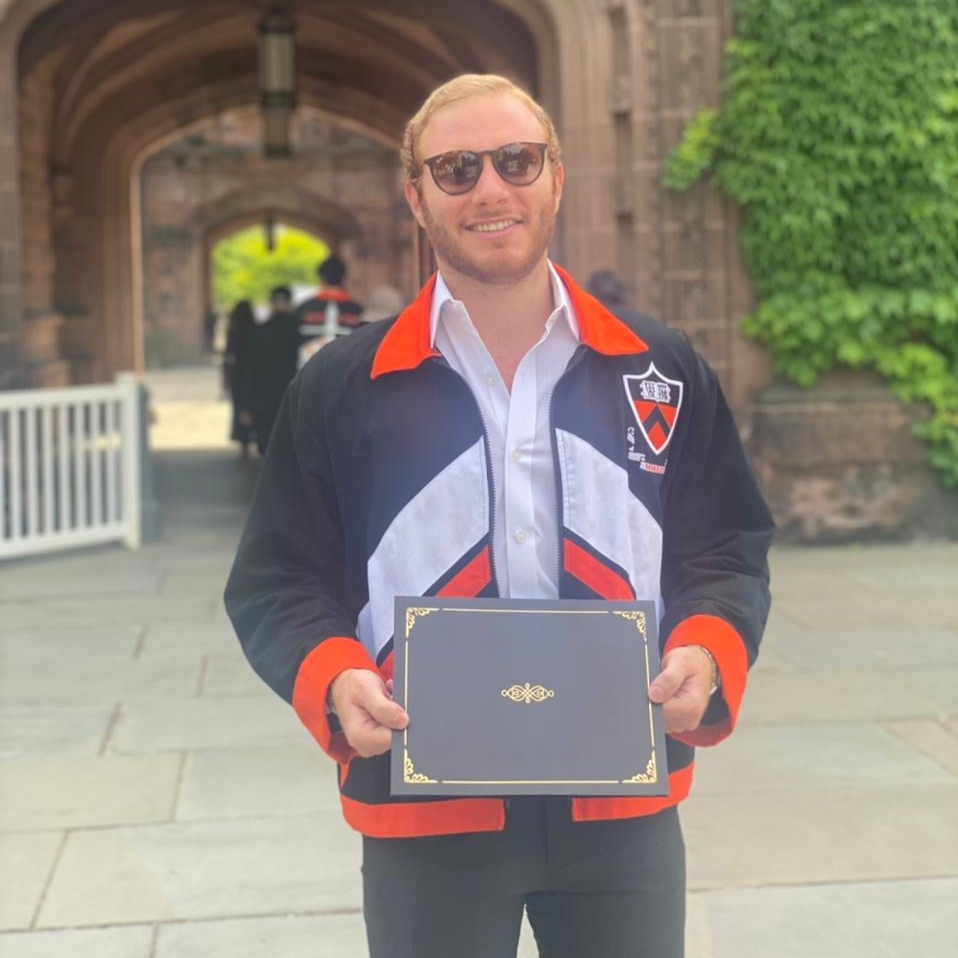
Diego Chiriboga
Winner of the Burton G Malkiel ‘64 Senior Thesis Prize in Finance for "Crisis-Time Lending Patterns: What Drives U.S. Banks International Loans During Financial Crises: A Vector Autoregressive Analysis."
Advisor: Christopher Neilson
What’s next?
Diego be working as an Investment Banking Analyst at Bank of America Merrill Lynch.
Thesis advice for next year’s students?
“Start thinking of topics that you genuinely find interesting, and once you have narrowed your search down to a specific area, let yourself be guided by the data. The main limiting factor in the process of writing your thesis (outside of time) is the availability of data. It is possible that you will not be able to find a working dataset for the exact topic you want to explore, but you might be able to add a small twist and prove something slightly different but equally interesting with the data at hand. My advice is to be willing to compromise; find the middle ground between your ideal topic and what is actually feasible, and deliver an interesting and data-driven project.”
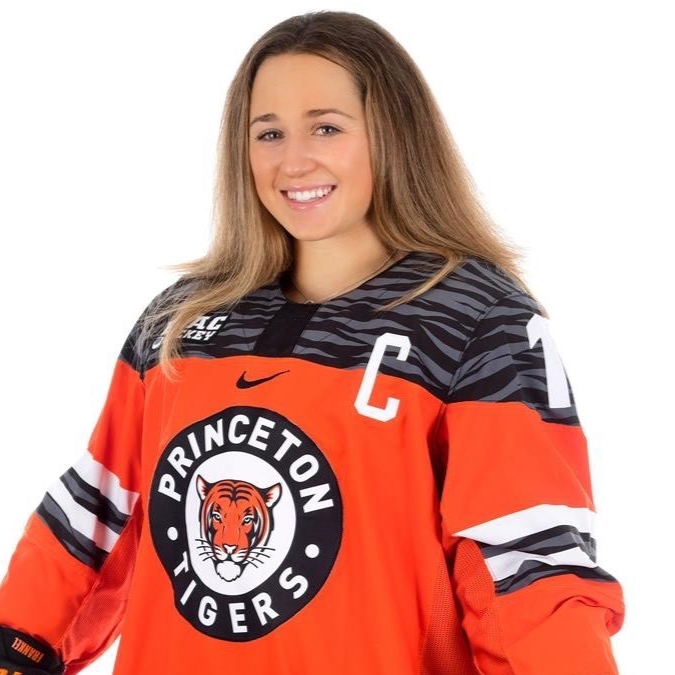
Sharon Frankel
Winner of the Walter C. Sauer ‘28 Prize for "Effect of the U.S.-China Trade War on Vietnam: The Birth of a New Asian Tiger."
Advisor: Gene Grossman
What’s next?
Sharon will be moving to Washington, D.C. in August to work as an economic analyst and continue her interest in economic research.
Thesis advice for next year’s students?
“Choose an advisor who you believe you will enjoy working with and with whom you share similar academic interests. Also, get your data done early, and don’t be afraid to ask for help from both your advisor and the ESS team!"
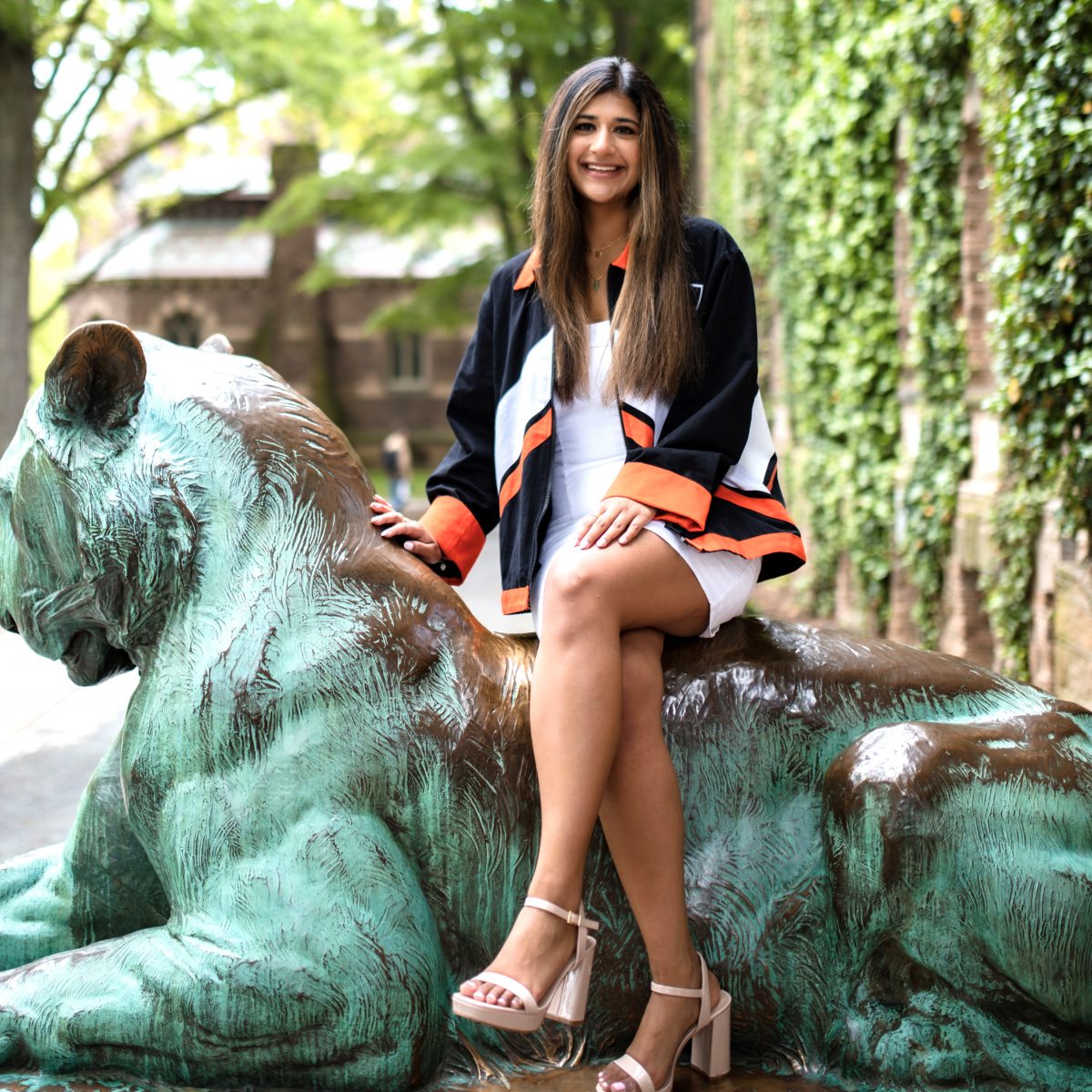
Seema Gupta
Winner of the Elizabeth Bogan Prize in Economics for "Hidden Costs, Time Lost: The Effects of Adverse Parental Health Shocks on Young Adult Labor Outcomes"
Advisor: Tianyi Wang
What’s next?
Seema will be working as an Associate Consultant in the Strategic Advisory Department at Trinity Partners in New York City.
Thesis advice for next year’s students?
“Find a group of friends to thesis with. It makes the writing process much more bearable — and sometimes even a little fun! Also, start working with your data as early as you can. Cleaning takes longer than you may anticipate, and knowing what data is actually available will help shape the direction of your research, especially if you are struggling to narrow down your topic."
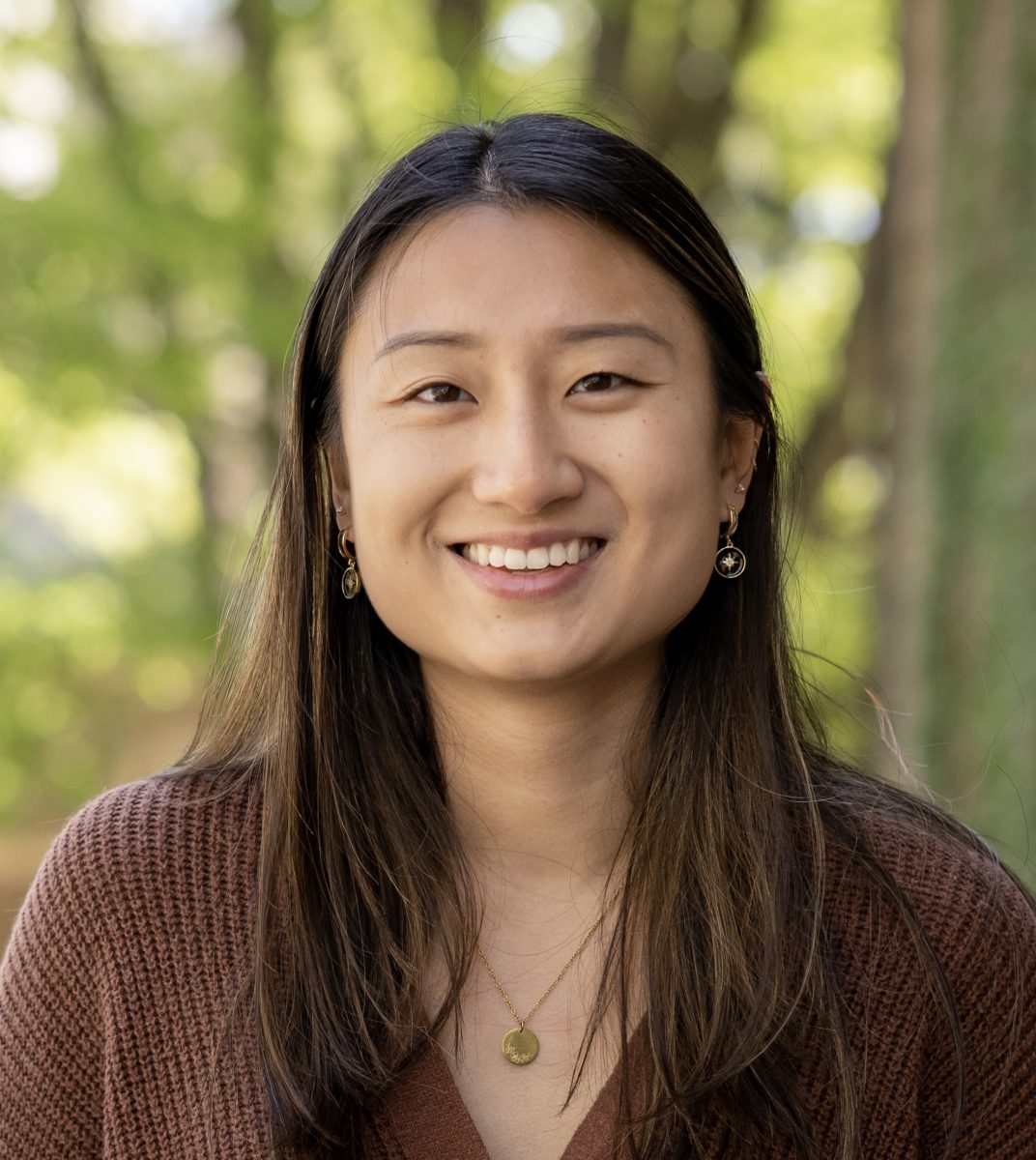
Caren Ju
Winner of the Dan I. Rubinfeld ‘67 Prize in Empirical Economics for "Residential Mobility and Migration Responses to Implementation of State Earned Income Tax Credits."
Advisor: Joan Monras
What’s next?
Sharon will be an Associate at Boston Consulting Group in the Chicago office.
Thesis advice for next year’s students?
“Don't be afraid to jump into the data! Instead of starting with a fixed research question, my advisor encouraged me to begin with basic regressions to better understand the data. From there, I was able to advance and refine my question as I found more interesting patterns in the sample.”
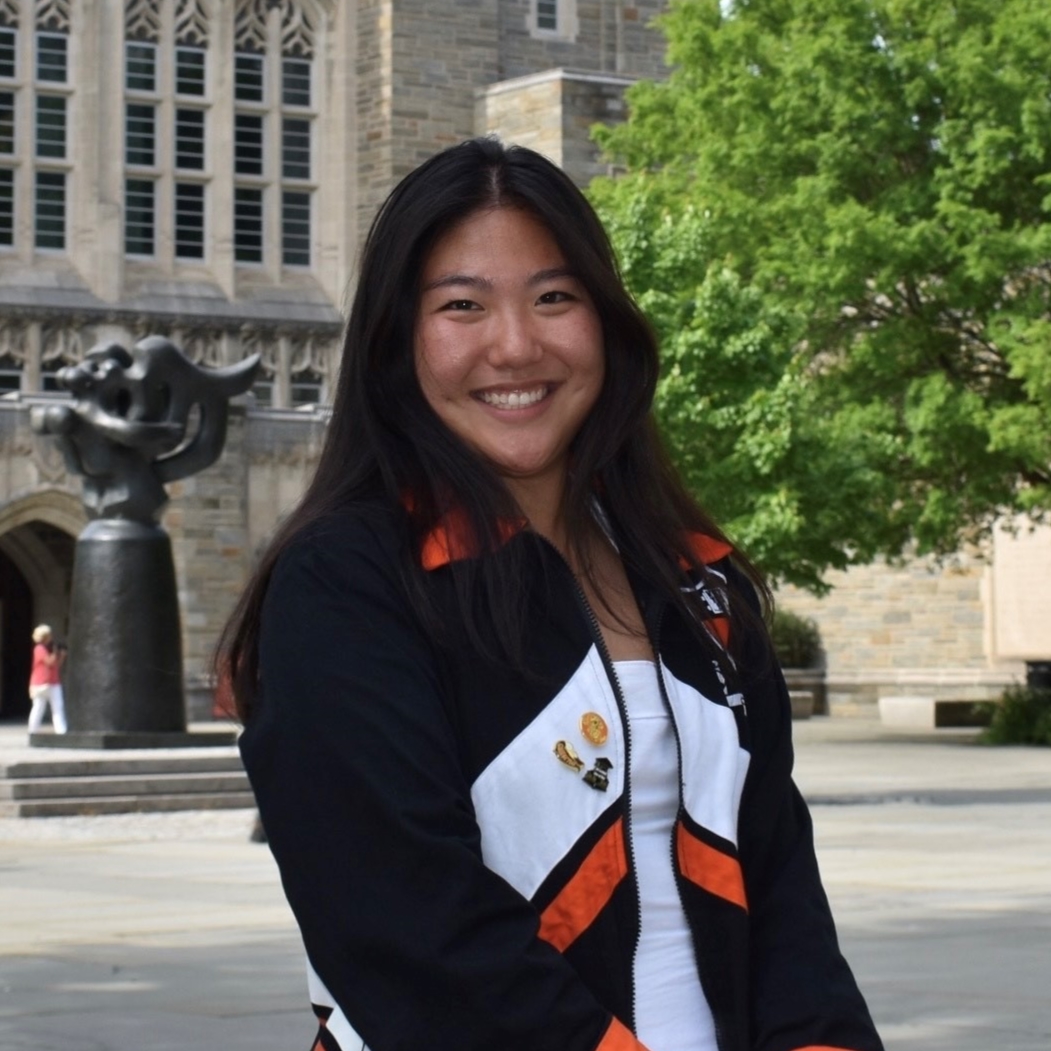
Gio Kim
Winer of the John Glover Wilson Memorial Award for “The Fairest of them All: Exploring the Effects of Fairtrade Certification on Gender Equality in Coffee Farms Across the Coffee Belt Regions.”
Advisor: Ellora Derenoncourt
What’s next?
Gio will be joining Accenture in New York City as a Strategy Analyst.
Thesis advice for next year’s students:?
“Find a topic that genuinely interests you and want to learn more about. Create a roadmap for your thesis that works for you; do not let others' progress stress you out, work at your own pace and soon enough you will be PTL!”
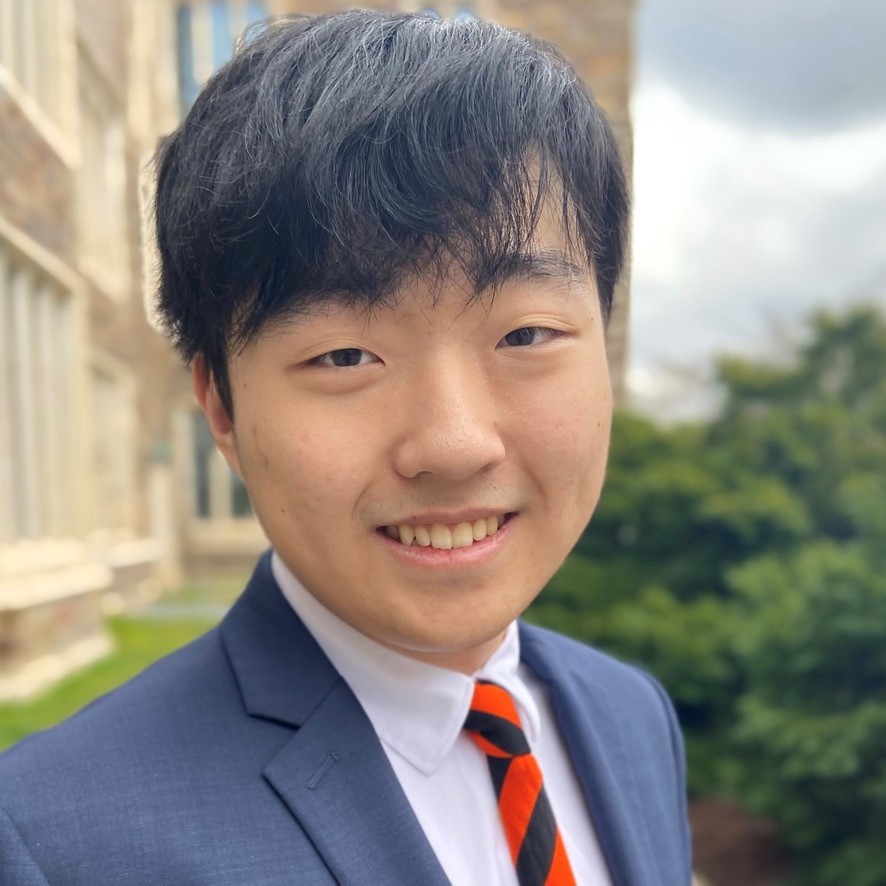
Sungho Park
Winner of the Wolf Balleisen Memorial Prize for "Winds of Climate Change: Maritime Technology, Trade, and Origins of Environmental Consequences."
Advisor: David Schoenherr
What’s next?
Sungho will start a predoctoral research position this summer and will be applying to PhD programs in finance and economics in the near future.
Thesis advice for next year’s students?
“I think that it's best to have a thesis advisor that is a good fit with you not only in terms of research, but in terms of other interests and personality. David, my advisor, and I not only talked about research and economics, but we also would occasionally talk about how Anthony Modeste scored another goal for FC Köln that week. Furthermore, a good paper is a convex combination of novel, feasible, and interesting. You should be constantly brainstorming new ideas, learning about new methods, etc. Of course, it is important to stick to one or a few ideas at a certain point and execute them well.”
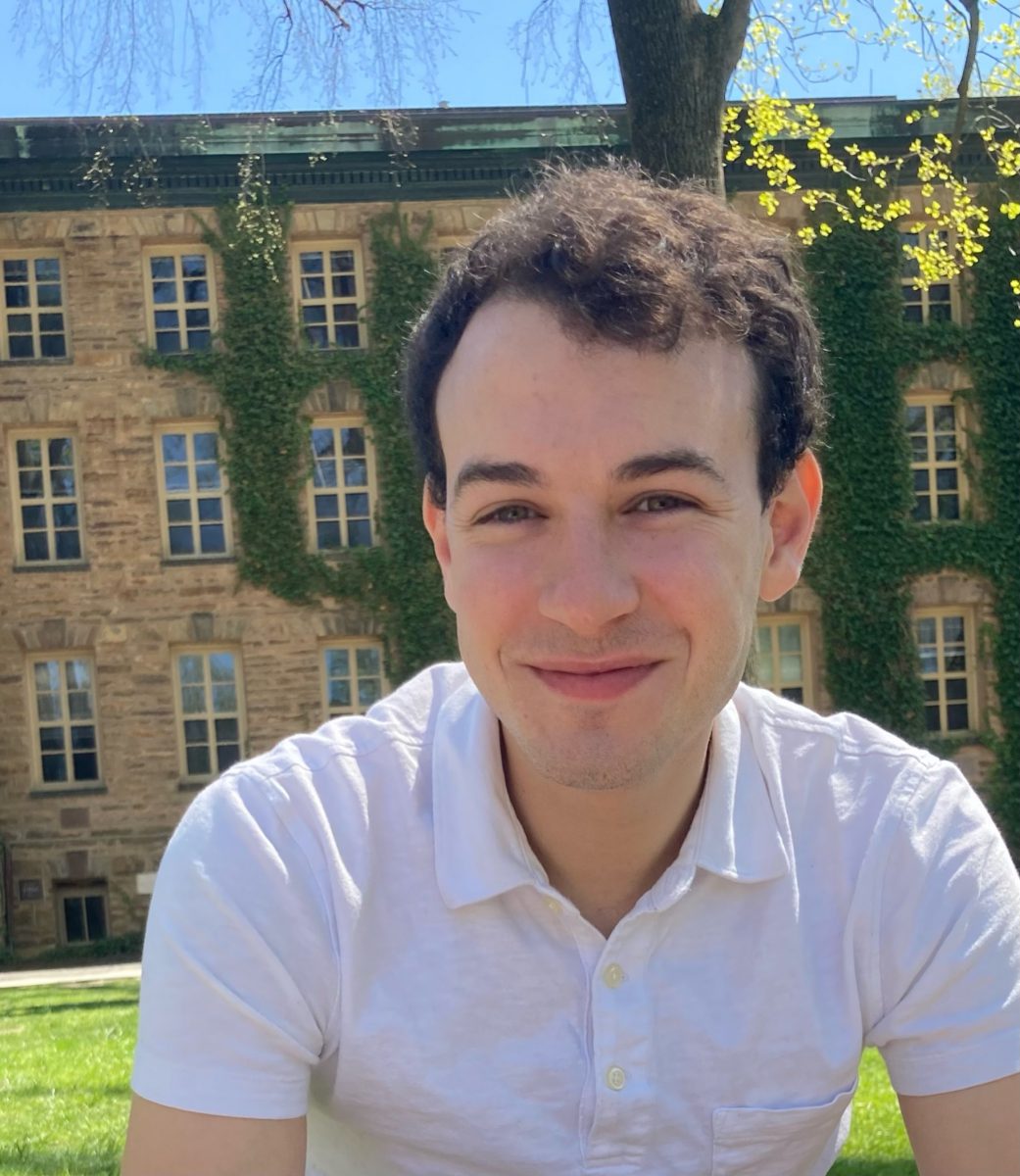
Zachary Shevin
Winner of the Dan I. Rubinfeld ‘67 Prize in Empirical Economics for "Extreme Weather Events, Climate Change Conceptions, and the Role of Partisanship.'
Advisor: Andrea Wilson
What’s next?
Zachary will join Cornerstone Research as an analyst within the Boston office.
Thesis advice for next year’s students?
“Be realistic with yourself about what a 50-page economics paper can accomplish. A thesis can address a hugely important issue, but your senior thesis is also unlikely to solve all of the world's problems. With all of the emphasis that Princeton places on the thesis, that reality can almost feel like a let-down — but it shouldn't. I would recommend tackling a big issue you consider important, but ensuring you do so with a somewhat-narrowed scope and clear set of research questions. Making a small but clear contribution to the scholarship on a relevant topic is incredibly valuable, often more valuable than attempting to address an issue from all angles given the nature of an economics thesis.”